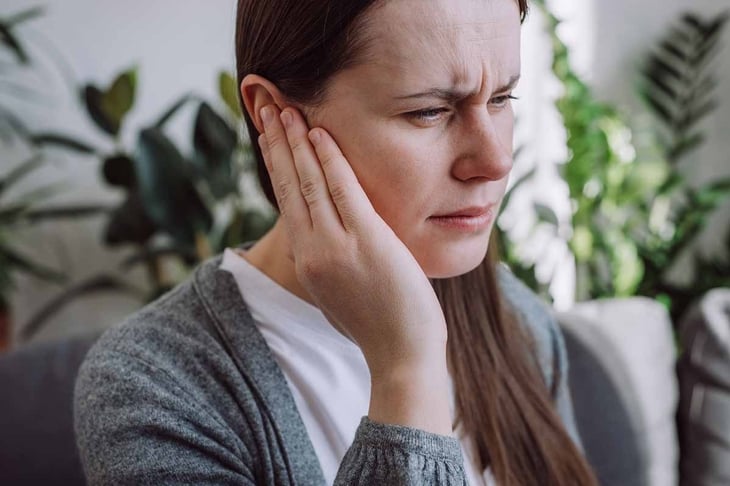
Gone are the days when a doctor would hand you antibiotics every time you got an ear infection. We now know that many ear infections are viral and go away on their own, but that doesn’t make them any less painful. If you’re looking for some relief, these home remedies for ear infections can help. Just remember to connect with your healthcare practitioner for a personalized treatment plan.
Take garlic
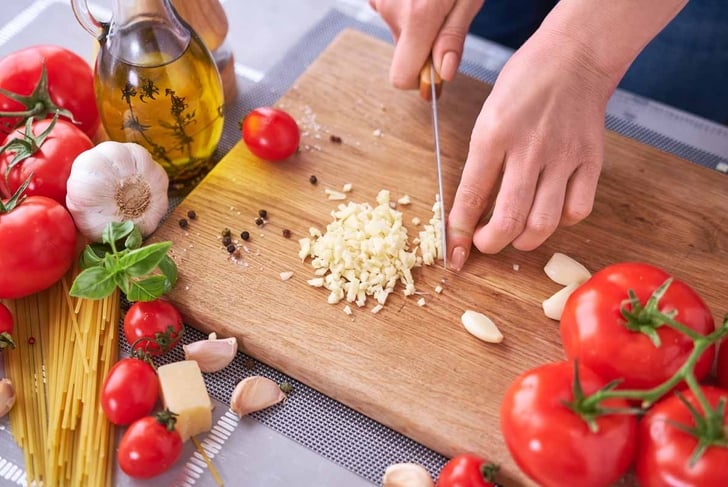
Break out the breath mints because you’re probably going to start eating a lot more garlic. Research suggests that garlic fights bacteria, viruses, and even parasites. In fact, some of its compounds specifically target the micro-organisms that cause ear infections. You can increase your garlic intake when you feel sick, but consuming it regularly can act as a preventive measure against germs.
Apply ginger
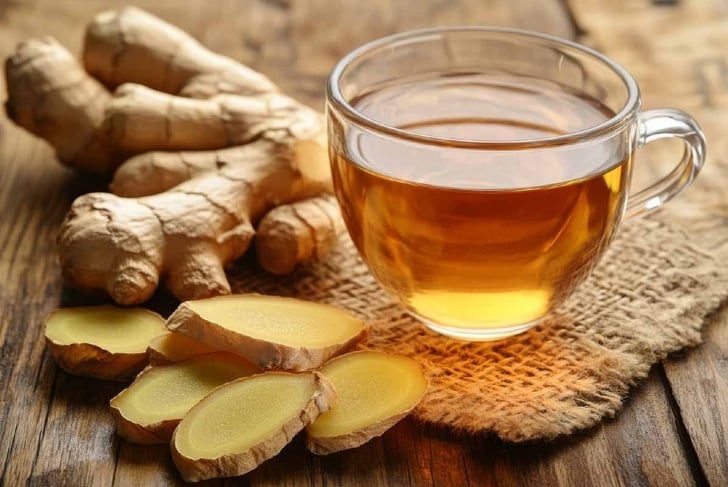
Ginger has anti-inflammatory and antibacterial properties, and some people have found earache relief through ginger juice. Apply ginger juice around the ear, avoiding the ear canal. Use the ginger on your outer ear several times a day to ease pain and swelling. Since the compounds in ginger are antimicrobial and fight germs, you can also consume ginger or take a ginger supplement to boost your immune system.
Use warm and cold compresses

Just as you heat and ice a muscle injury, you can do the same with an earache. The cold compress will ease inflammation while the heat loosens the muscles surrounding the ear, allowing blood to flow more easily. Alternate between hot and cold compresses every 30 minutes.
Try hydrogen peroxide
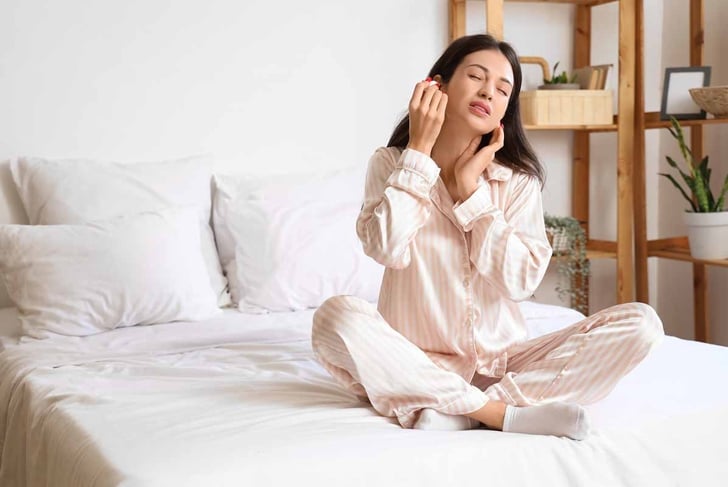
Cleaning your ears can reduce the buildup of germs in your ear canal—but instead of reaching for a cotton ball, place a couple drops of hydrogen peroxide into the ear canal. Allow it to sit for a few minutes. When you’re ready, flip your head so that your ear drains, removing any buildup along with the hydrogen peroxide.
Do neck exercises

It may seem too simple to be true, but exercising your neck can help your ear infection. Swelling around the ear canal is a common problem when you have an earache, which can lead to painful inflammation. Stretching your neck muscles aids blood flow and decreases the pressure in and around your ears. You can lean your head toward one shoulder, then the other, do some head circles, and open and close your jaw. Repeat these gentle movements as often as you’d like throughout the day.
Swap out your sleep style

Placing unnecessary pressure on your ear can intensify pain from an earache, so if your infection is only on one side, sleep on your other side. If you have an earache in both ears, try sleeping on your back. Since fluid buildup is often the cause of an ear infection, you can also try propping your head up with two pillows to allow the fluid to drain.
Consider homeopathy
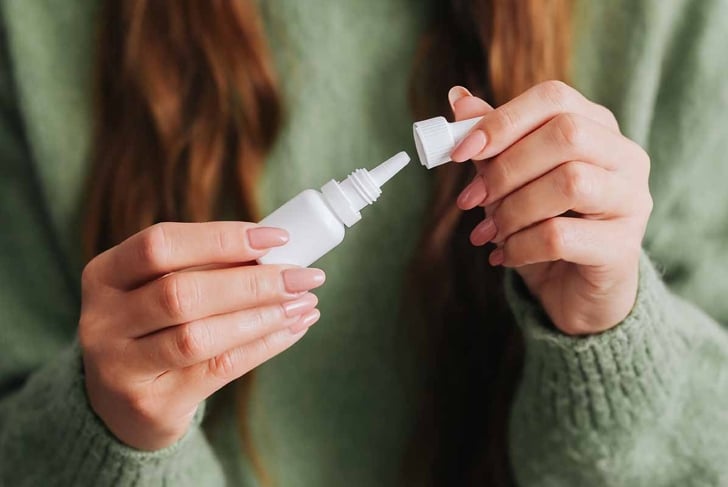
Homeopathic ear drops may help fight ear infections. Individuals who have taken these herbal drops for their ear infections have reported relief without side effects. Homeopathic ear drops include different ingredients, such as chamomile or mullein, so if you decide to give homeopathy a try, check with your healthcare practitioner when deciding which one will work best for your condition.
Gargle saltwater
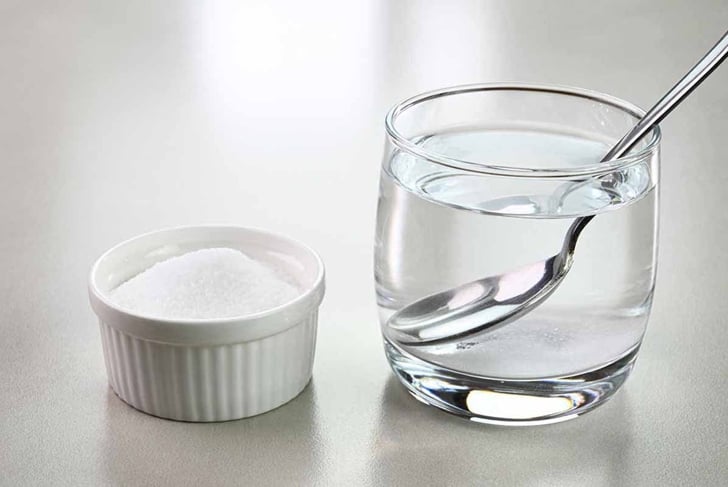
If your ear infection comes with a sore throat, finding relief may start there. Gargling saltwater exercises the muscles in and around your ear, and it can also help drain your ears. Additionally, salt has been proven to fight germs. Mix 1/2 tsp of salt and 8 oz of warm water and gargle several times a day, spitting out the mixture each time.
Drain your ears

Water in your ear isn’t just annoying; it can lead to bacterial growth. Swimmer’s ear is an infection that occurs when your ears don’t drain after your head has been underwater. The best way to prevent swimmer’s ear is by keeping the water out of your ear in the first place. Use earplugs or bathing caps when you’re in the water, and after a swim, drain your ears. Try tilting your head from side to side so that your clogged ear faces the ground. If the water needs extra help escaping, pull on your earlobe or use a hair dryer on a low setting to dry your ear.
Irrigate your sinuses
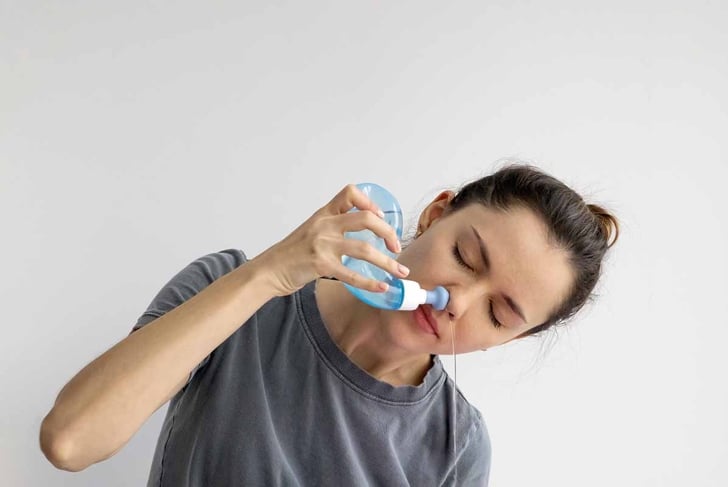
While it isn’t recommended to irrigate your nasal passages when you have an infection, it’s a good way to help prevent future ones. Clearing your nasal passages removes germs, allergens, and dust from your sinuses. You can use a neti pot, bottle, or container to rinse your sinuses with a saline solution. It may take some getting used to, but once you get the hang of it, you’ll breathe better, feel relief from sinus pressure, and avoid some infections.





